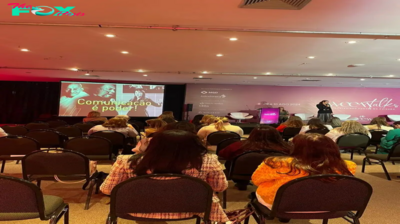Entertainment
Effective performances of two twentieth-century Italian masterworks in Salzburg – Seen and Heard Worldwide
 Austria Salzburg Competition [3] – Nono and Dallapiccola: Soloists, Bavarian Radio Refrain (refrain director: Peter Dijkstra), Vienna Radio Symphony Orchestra / Maxime Pascal (conductor). Felsenreitschule, Salzburg, 25.7.2024. (MB)
Austria Salzburg Competition [3] – Nono and Dallapiccola: Soloists, Bavarian Radio Refrain (refrain director: Peter Dijkstra), Vienna Radio Symphony Orchestra / Maxime Pascal (conductor). Felsenreitschule, Salzburg, 25.7.2024. (MB)
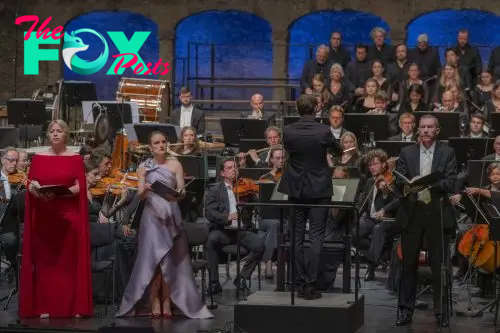
Nono – Il canto sospeso
Caroline Wettergreen (soprano)
Freya Apffelstaedt (contralto)
Robin Tritschler (tenor)
Tobias Moretti (reciter)
Dallapiccola – Il prigioniero (live performance efficiency)
Mom – Tanja Ariane Baumgartner
Prisoner – Georg Nigl
Jailer / Grand Inquisitor – John Daszak
First Priest – Andrew Lepri Meyer
Second Priest – Timo Janzen
If the ‘mainstream’ operatic fare of this 12 months’s Salzburg ComPetition seems to be a little bit skinny on paper – actually for these of us immune to the alleged charms of Tsar Currentzis’s new garments – this live performance of two masterpieces of mid-twentieth-century music proved a roughly unqualified success. It clearly made a deep impression on the Felsenreitschule viewers, bearing witness in methods trustworthy to, but extending, the intentions of the works’ creators: Luigi Nono, this 12 months celebrating his centenary, and Luigi Dallapiccola, twenty years his senior.
Performances of Nono’s music have proved a welcome, sustained focus of the ComPetition throughout Markus Hinterhäuser’s intendancy. Il canto sospeso, as soon as previous a (very) transient early passage of uncharacteristically tentative taking part in from the ORF Symphony Orchestra underneath Maxime Pascal, acquired a efficiency of deep comprehension and dedication, framed by readings by Tobias Moretti of the texts set by Nono in what he thought-about, as within the music of Gesualdo, to be a ‘pluridimensional entire’, a counterpoint of sounds in musical declamation. Even in that first, orchestral motion, the burning humanity of Nono’s imaginative and prescient appeared to own all who listened (and performed). Taking its depart from Webern, Schoenberg, and Mahler too, the music’s fragility, darkness, and maybe hope had been rendered iMMAnent. The second motion’s a cappella writing from the superb Bavarian Radio Refrain supplied a distinction exceptional for its totally different but complementary conception of magnificence and what – horrible and great issues alike – that may imply, or a minimum of be. Solo vocal lyricism, Freya Apffelstaedt’s deep mezzo and Robin Tritschler’s passionate class included, forged its personal spell as modernist fragments each retained their integrity and constructed one thing past themselves. The expressive high quality of listening in addition to writing and performing music can hardly ever have felt extra obvious.
The Dies irae-like sixth motion might hardly have mirrored Esther Srul’s 1942 witness extra powerfully in essentially the most ‘direct setting’; certainly, it could absolutely have performed much less so.
The gates are opening. Our murderers are right here. Wearing black. They’re sporting white gloves on their soiled fingers. They drive us out of the synagogue in pairs. Expensive sisters and brothers, how exhausting it’s to say goodbye to this lovely life. You who’re left alive, always remember our harmless little Jewish road. Sisters and brothers, avenge us on our murderers.
Candy musical agony at its shut spoke of overwhelming ache inside, turned inward and outward, as did a spellbinding, harrowing account of the subsequent motion, for alto, refrain, and orchestra, during which each notice in addition to each interval appeared to take upon itself the burden of the world. Following Moretti’s final readings, the ultimate two actions sounded as if extra tender, readily communicative progenitors of Stravinsky’s Requiem Canticles, profound variations in aesthetic and approach however. Closing silence, magical but fragile, might not have ‘transcended’ – can or ought to something, following the horrors of which this music was born? – nevertheless it moved nonetheless, not not like Schoenberg’s A Survivor from Warsaw, which Nono vastly admired.
Dallapiccola got here from the technology in between Schoenberg and his posthumous son-in-law Nono, a residing hyperlink to enhance Nuria Schoenberg-Nono. In Con Luigi Dallapiccola for six percussionists and reside electronics (1979), Nono honoured the reminiscence of his predecessor, whom he had first met in 1947, the 12 months during which Dallapiccola accomplished his one-act opera. Il prigioniero, right here unstaged and seemingly in no want of staging, so highly effective was the efficiency (because it often is) from its twelve-note Puccini opening to the ultimate query, ‘La libertà?’ and comparable, unbroken silence to that which had adopted Nono’s cantata.
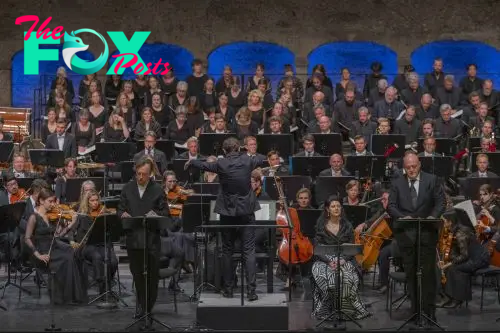
There lies a world in between, although: one which belies the work’s brevity — once more, as in Nono and certainly Wozzeck, whose instance looms massive. The passionate precision of that opening was matched and heightened by comparable ardour and precision from Tanja Ariana Baumgartner because the prisoner’s Mom, so vivid one might ‘see’ the scene she painted earlier than us, dream of Philip II and all. The refrain’s interventions overtly reinstated a liturgical high quality already implicit in Nono. All of the whereas, the workings of the ‘system’ appeared not solely to reflect but in addition to create an antinomy between freedom and determinism Dallapiccola might have inherited from Schoenberg, however which he made indelibly his personal. Mahlerian marching, Tosca-like torture, and the dual distinction and complementary between the Prisoner’s anger and his Gaoler’s wheedling insinuation despatched us hurtling towards the tragic denouement, hope unmasked in devastating inversion of Fidelio as the best torture of all. John Daszak and Georg Nigl gave defiantly un-score-bound performances, to which one would possibly presumably have harboured purist objections on paper, however any such objections evaporated into skinny air within the warmth of such dedicated efficiency. Deafening bells and sonically disappointing organ likewise mattered not a jot in apply. This was a confession to which all, listeners and performers alike, should contribute and did.
Mark Berry
-

 Entertainment31m ago
Entertainment31m agoGladiator II Belongs to Denzel
-
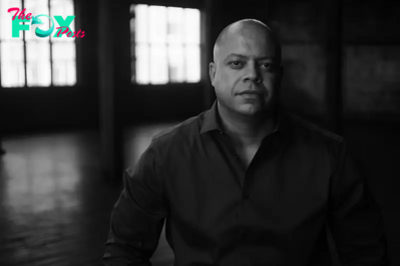
 Entertainment31m ago
Entertainment31m agoJJ Velazquez on Finding Freedom, From Sing Sing to Sing Sing
-
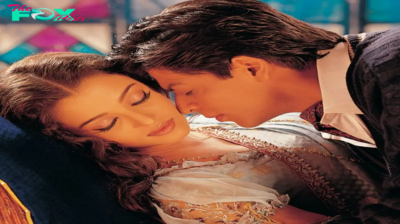
 Entertainment5h ago
Entertainment5h ago13 Most Romantic Movies Based on Novels
-

 Entertainment5h ago
Entertainment5h agoThe Monkey Is the Secret Hero of Gladiator II
-

 Entertainment5h ago
Entertainment5h agoHow Wicked Connects to The Wizard of Oz
-

 Entertainment7h ago
Entertainment7h agoWhere Is Yellowstone’s Kelly Reilly From? Fans Shocked When She Reveals Real Accent
-

 Entertainment7h ago
Entertainment7h agoWhy Is the ‘Wicked’ Movie Split in 2 Parts? Director Jon M. Chu Explains Reasoning
-

 Entertainment11h ago
Entertainment11h agoAll About That Major Surprise Cameo in the Wicked Movie


